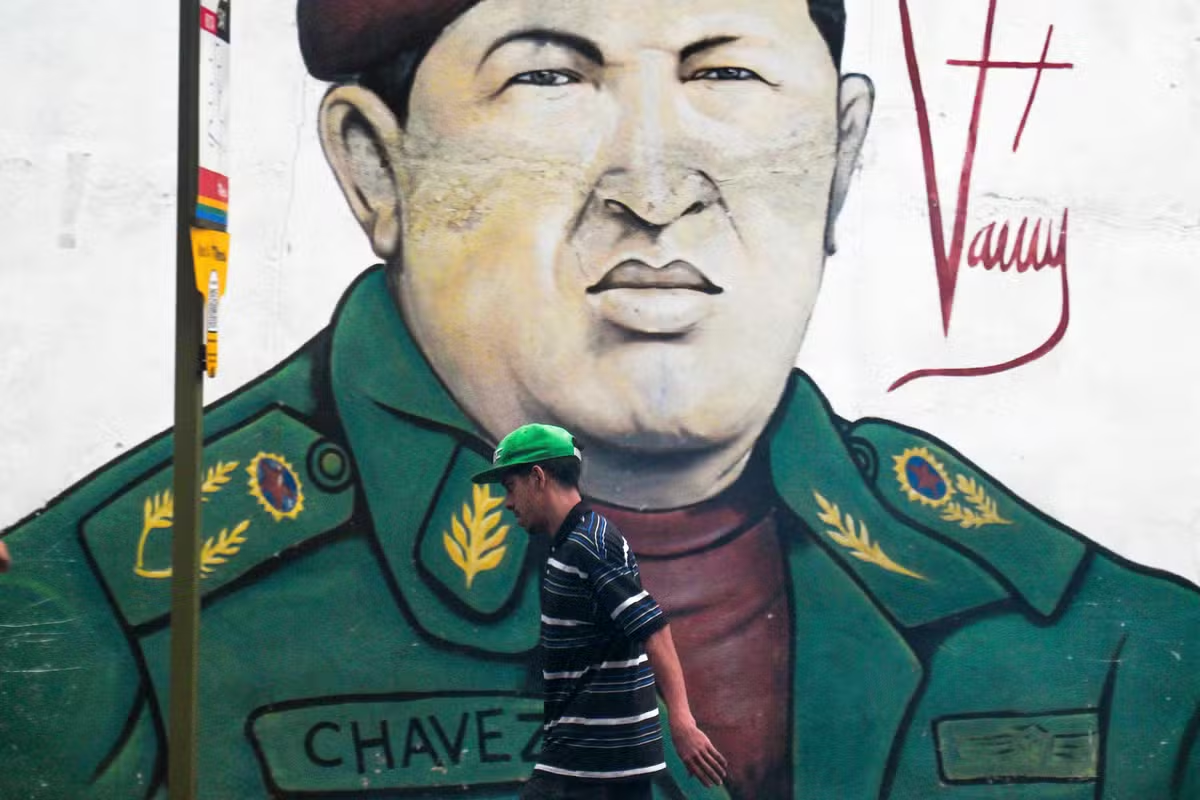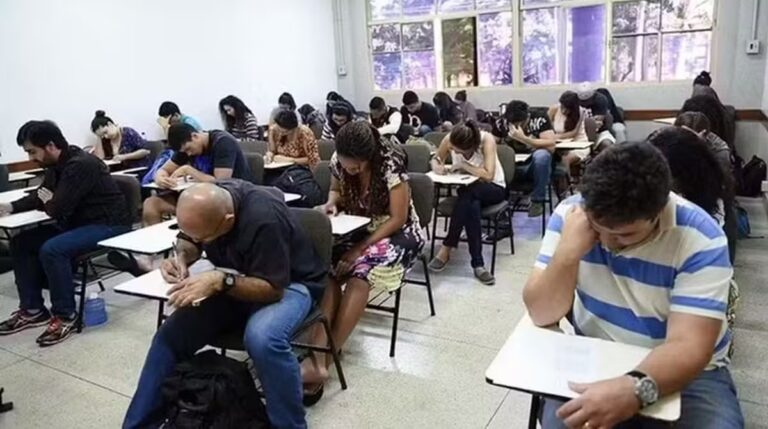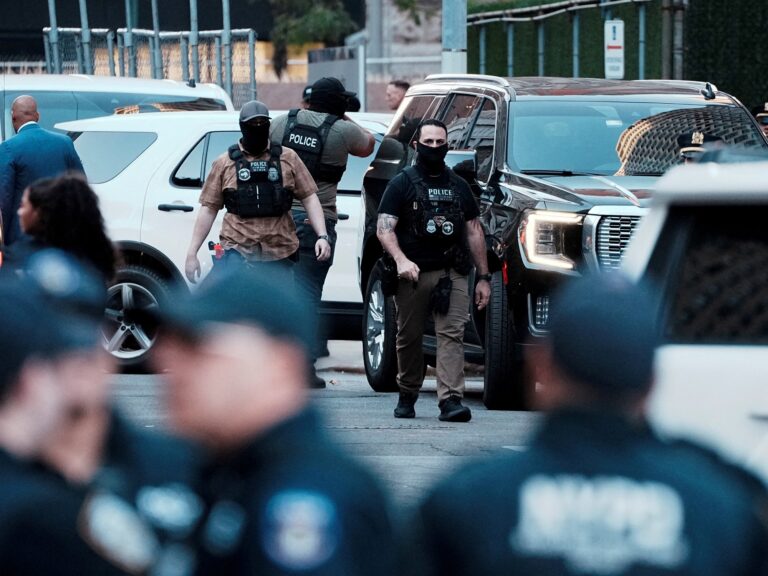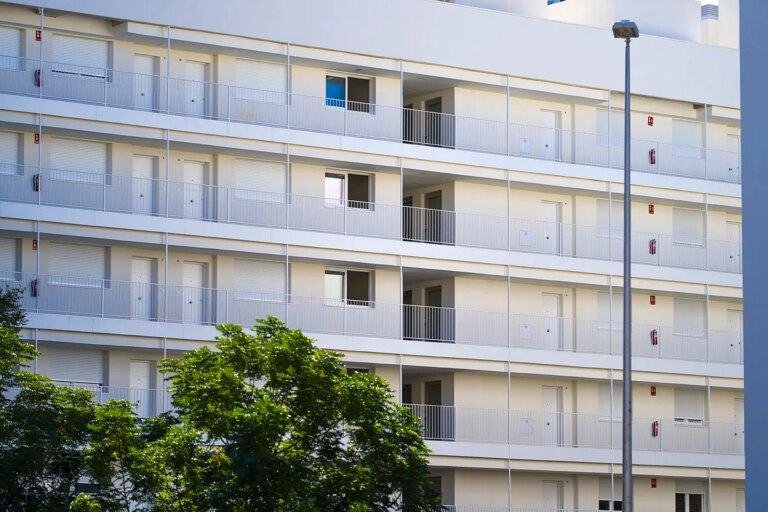
Venezuelan President Nicolás Maduro said this early Wednesday morning: unified defense commanda new structure for the country’s territorial defense created by a law enacted a day earlier was expanded by sending the world’s largest aircraft carrier to the Caribbean amid rising tensions with the United States. The Chávez government has classified American military activity as an existential threat, leading the Venezuelan military to announce a major mobilization against what it calls an “imperial threat.”
- Imperialist threat: Maduro forces are on ‘high alert’ after largest US warship arrives in Caribbean
- USS Gerald R. Ford: Meet the deadliest US aircraft carrier sent to the Caribbean
An integrated defense command will become the new line of Venezuela’s defense system. The structure was determined by the National Comprehensive Defense Force Law, approved by a qualified majority vote in the Chavismo-dominated National Assembly on Tuesday, and promulgated by President Maduro hours later. According to a document approved by Congress, the regionalized organization will function in the planning, coordination and implementation of strategic lines of defense against external and internal attacks and is part of an effort to unite Venezuela’s public institutions, including the Bolivarian National Army and the so-called People’s Power.
Recruits for the new command will be trained by the national army and assigned to the Military Strategic Operations Command. According to the text of the law, some of the functions assigned to the new agency include supporting military operations (if necessary), ensuring the continuity of productive activities and public services throughout the country, and collecting and analyzing strategic intelligence to identify potential threats to national security.
– We are approving a fundamental law that establishes a new way of dealing with deployment, compliance with orders, the movement of troops and, above all, the connection between the people and the military, said Congress President Jorge Rodríguez during the session approving this law, insisting that the new regime follows the military doctrine inherited from former President Hugo Chávez.
- In Washington: Officials believe President Trump is likely to order an attack on Venezuela
Although it regionalizes the defense system, the main purpose of this measure appears to be to strengthen defense capabilities as well as strengthen internal cohesion in the face of possible conflict scenarios. The law also ensures that control of the operation remains in Mr. Maduro’s hands. The president is responsible for determining the formation, supervision, and management of associations “at various regional levels.” The president also appoints the general coordinator of the command. The main objective of this action is to strengthen the defense capabilities and cohesion of the Venezuelan military in the face of possible conflict scenarios.
“We are acting according to the law, we are on our land, and nothing and no one should try to disturb the peace and tranquility of this land and this people. We are a peaceful people, but we are a people who have proven throughout history that we can do anything,” President Maduro declared at an event broadcast by state broadcaster VTV on Tuesday. –Peace, peace, peace, we want peace. We will be as prepared as possible in the face of maximum pressure.
/i.s3.glbimg.com/v1/AUTH_da025474c0c44edd99332dddb09cabe8/internal_photos/bs/2025/g/w/Cf0a8GS4CqYhvQaFmA0w/afp-20250828-72re79e-v1-highres-venezuelausdiplomacydefense.jpg)
Five committees will be established to immediately administer the directive: the Bolivarian Patriotic Committee, the Economic, Production and Services Committee, the People’s Social Affairs Committee, the Internal Order Committee, and the Mobilization and Recruitment Committee. The law stipulates that each governing body has a situation room to collect, analyze and interpret strategic information resulting from the activities carried out by working committees within its respective jurisdiction, and may “analyze and interpret strategic information” within its jurisdiction, a measure that in practice could further close the siege to any manifestations of opposition to the government.
The law also provides two transitional provisions. The first of them decides that, within a period not exceeding six months from the date of entry into force, the Ministry in charge of defense affairs, through the Strategic and Operational Command of the Bolivarian National Armed Forces, shall draw up the necessary manuals, plans and orders for the implementation of the provisions. The second provides for a three-month period for existing government agencies for comprehensive defense to adapt to the new order.



